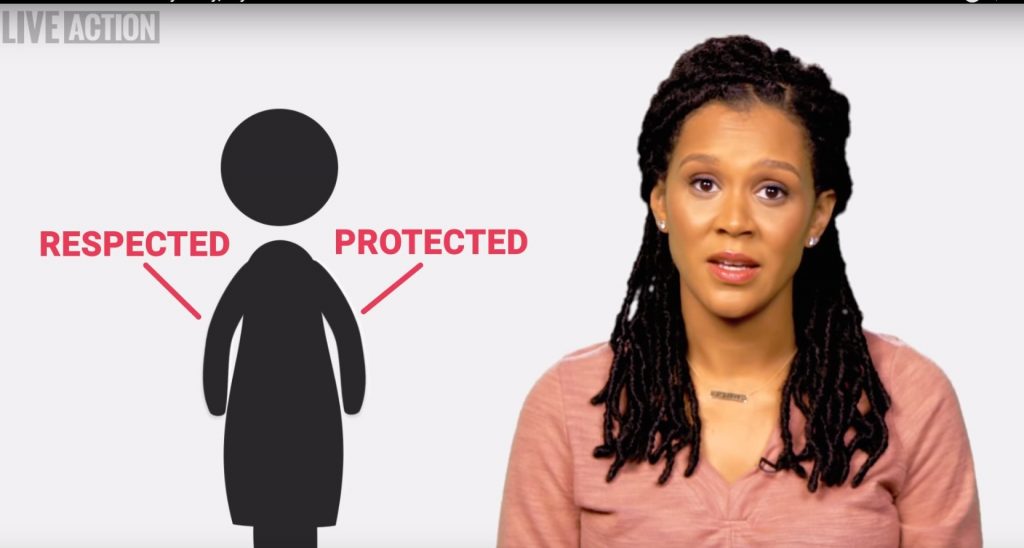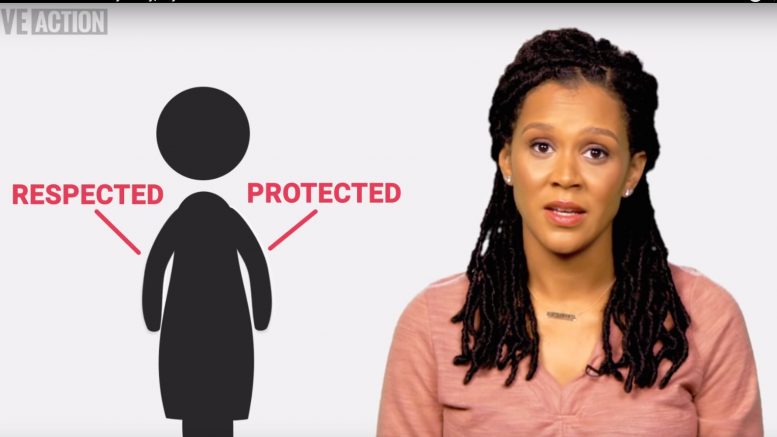
“My body, my choice.” It’s one of the most common arguments used to defend abortion. But what about the bodily rights of the preborn baby? In this video, Kristin Watson, wife of Superbowl Champion Benjamin Watson, explains how to respond to “My Body, My Choice” and reinforce the pro-life argument for the most vulnerable members of society.
When women say, “My body, my choice,” I agree. YES, we have the right to our bodies and our bodily autonomy. Women and their bodies must be respected and protected. Bodily rights are especially important when a woman is pregnant, because there is more than one body involved.
After all, carrying a baby is a bit more complicated than, say, carrying a football.
This is my husband, Benjamin. He’s a tight end for the New Orleans Saints and he’s scoring a touchdown. And now he is announcing that I am pregnant. With twins.
So, case in point: It’s not just MY body here. There are three bodies. Some people try to say that “children in the womb are part of the woman’s body”—but come on. If a child in the womb were literally part of a woman’s body, like her arm or leg, then I would have three hearts, three brains, thirty fingers, and because there are two boys in there, I’d be mostly male.
So when people try to say “My body, my choice” to defend abortion, that doesn’t make sense. ‘Cause here’s the thing about bodily rights, and rights in general: A right isn’t a right if I only apply it to ME and remain unwilling to grant to others what I ask for myself. To put it simply, a woman’s right over her own body does not include the right to end the life of an innocent human being.
Think about it: we would find it horrifying if a pregnant woman intentionally took drugs, while knowing that it could cause her child to be harmed physically or mentally. However, if a woman has the right to do anything she wants with her body, including terminating her child, then we can’t say that’s wrong.
Furthermore, we must recognize that there is a special relationship between the bodies of a mother and her children. Parents, both mothers and fathers, have natural obligations to support their children that even our legal system recognizes. This is why we require that fathers pay child support for eighteen years. The father does not get to say “My body, my choice,” choose not to put his body to work, and opt out of paying to support the child he helped create. Both parents are responsible to feed, house, care for, and otherwise not neglect their children. If they cannot care for a child, a mother or father is not allowed to end the child’s life. They must make an adoption plan, or abide by Safe Haven or Baby Moses laws and leave a child at a hospital, police station or fire station. Since parents have a natural and legal responsibility to meet the basic needs of their children after birth, it follows they have the same duty before birth.
But when women say “My body, my choice,” regarding abortion, think about the message that sends to men. “It’s ‘Her body, her choice’ so I don’t need to take on the responsibilities of manhood, marriage, or fatherhood.” “It’s ‘Her body, her choice,’ so it’s her problem.” If a man uses a woman for nothing other than sex, gets her pregnant and she has an abortion, he can shrug it off as a “women’s issue.” “My body, my choice” is not an argument for women’s bodily rights if it results in a woman being neglected, rather than respected and protected.
It is backwards to say that preborn children do not have a right to life because they are completely dependent on the mother’s body. An infant once born is still completely dependent on the bodies of others for survival, but no one thinks an infant lacks the right to life. The weakness and dependence of children is reason to give them more care and support, not less. Dependency does not eliminate humanity.
In fact, dependency enriches humanity. Benjamin and I, and our seven children are all dependent, on each other, on our community, and on God. Let’s have a community in which bodily rights and bodily autonomy means we respect, protect, and support one another, including the weakest among us.
SOURCE: LIVE ACTION

